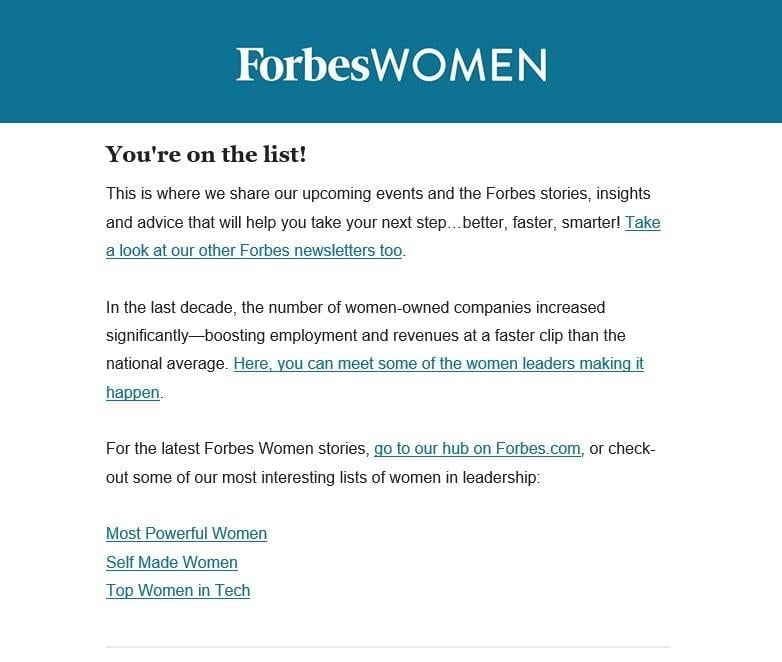Take note of these essential factors when purchasing a hematologist's emails list. You must ensure that your list is accurate, efficient. compliant legally, and pertinent to your goals in marketing. These are the most important aspects to take into consideration: Quality of data and accuracy
Source of Information: Confirm that the provider of the email list relies on reliable sources such as medical databases, professional directories, or verified opt-ins from doctors. The reliability of list will determine the quality of the list.
Verification of data and updates Ask about the verification of data process employed by your service provider. Email addresses that appear to be not active or not correct should be removed. The list should be reviewed often to ensure accuracy since healthcare professionals might change institutions or positions.
Segmentation and Specialization: Make sure the list is only for Hematologists. It could also be divided by location and the level of experience, hospital affiliation, and subspecialties. Segmented lists help you better tailor your efforts.
2. Compliance with Legal Regulations
Data Privacy Laws: Ensure that the list of addresses is in compliance with regulations on data protection like the General Data Protection Regulation (GDPR) in Europe, California Consumer Privacy Act (CCPA) in the U.S., and other relevant laws. That means email addresses will only be collected once consent has been granted.
CANSPAM Act: If you reside located in the U.S.A. Make sure your list conforms to the CANSPAM Act that regulates all commercial email communications. Non-compliance could lead to sanctions and your email may be flagged as spam.
Opt-in Consent. The email list must consist of hematologists who have opted explicitly in to receive third-party emails. Sending uninvited emails to those who don't have consent could result in poor engagement as well as legal problems.
3. Provider Reputation
Reputable Provider: Study the list provider's reputation. Check reviews, testimonials and case studies to find a reliable business. A business with a strong history is likely to offer data of high quality and compliance.
Transparency. Choose a service that's transparent regarding how and from where the data comes from. Avoid providers that don't provide clear information about method of collecting data.
Customer Support: It's essential to choose a company that offers high-quality customer service. There may be a need for assistance with technical issues, checklist customization, or questions regarding compliance. A strong support can make all the difference.
4. Return on investment (ROI) and cost
Pricing Model: Examine the pricing model offered in the form of pay-per-contact or flat fee. Make sure the cost corresponds to the return on investment. This means balancing your marketing budget and high-quality lists.
Refund and Replacement Policy. The majority of reputable companies will provide a refund or a replacement policy in the event that the email address is not valid or has expired. Clarify this policy's terms before buying.
Value for money: Check the attributes of the lists (such as segmentation and accuracy guarantee offered by the provider) with the price. The most affordable list might not necessarily provide the best value if the data quality is not great.
5. Data Ownership & Usage
Single Use vs. Multiple Use: Read the conditions and terms prior to using an email list. Certain providers allow only the use of the list for a specific campaign whereas others provide unlimited use rights.
Exclusive vs. Shared Lists - Find out whether this list of email addresses is exclusively yours or shared with others. Exclusive lists typically have higher engagement rates as people are less likely to receive emails from different sources.
6. Data Integration and Format
Compatibility with CRM or Email Tools: Ensure that the email list can be easily integrated into your CRM or email marketing platforms. It is important to make the list available in standard formats such as CSV and Excel for easier integration.
Simple of Use: Examine how easy it is to filter and manage your list. Lists difficult to segment may reduce the effectiveness of your marketing campaigns.
7. Ethical Concerns
Relevance to Hematologists: Make sure that your email outreach is relevant to hematologists. If you send content to hematologists that does not align with their expertise could cause lower engagement, which will negatively affect your brand reputation.
If you send too many emails, it could be considered spam. Sending out too many emails can damage the reputation of the email sender.
Conclusion
A hematologist's email list can be a powerful way to market your business specifically to specific audiences, however it is important to be aware when buying one. You should focus on the quality of data as well as the compliance with privacy regulations and the credibility of the provider to get an accurate and useful list. Prioritizing segmentation and the legal requirements and ethical marketing can allow you to maximize your return on investment and keep your brand's name in good standing. Read the top hematologists email list for blog advice.

What Are The Things I Need To Consider Prior To Purchasing A Urgent Care Email List?
It is important to take into consideration a variety of aspects when buying an email list for urgent assistance. This will ensure that the list you purchase is accurate and compliant with the law and relevant to marketing goals. Below are some important aspects to consider. Data Quality and Accuracy
Source of data: Make sure that the provider is obtaining the data they need from reliable sources such as medical associations or healthcare databases. Avoid lists created by scraping or employing unreliable techniques. These may include inaccurate or outdated data.
Verification: Check if the email list is frequently up-to-date. A reputable service provider will follow a stringent method of verification to eliminate inactive or obsolete email addresses. This ensures that you receive high delivery rates and reduces bounce rates.
Segmentation & Targeting The segmentation should contain details like the location of the clinic (e.g. city, state, or region), its size, and any specific areas of expertise (e.g. diagnostics, pediatrics) and the roles of important decision makers (e.g. doctors and practice owners). A targeted list enhances the value of your outreach, and also increases the rate of engagement.
2. Legal Regulations
Data Privacy Laws : Ensure your list complies the relevant laws on data protection for example, in Europe the General Data Protection Regulation, in the U.S. the California Consumer Privacy Act and any other local regulations. This means that email data must be collected and processed in a legal manner with the permission of all the parties involved.
Compliance with the CANSPAM Act Compliance with CANSPAM Act: All email marketing efforts within the U.S. must adhere to the CANSPAM Act. This includes providing a clear opt-out mechanism, avoiding misleading subject lines, and including your physical address in emails. Failure to comply could result in fines and damage to the reputation of your company's image.
Opt In Consent: Ensure the email addresses on your list are obtained by explicit opt-in consent. This means that the recipients have consented to being targeted by third companies to promote their products or services. This helps reduce complaints about spam as well as legal issues.
3. Provider Reputation
Established Providers: Choose a company that has a history of delivering email lists with good quality and with compliance. Look through testimonials, case studies, and reviews from previous clients to assess the provider's customer satisfaction.
Transparency: Providers must be transparent in the way they sourced the data as well as how often it is changed. If they are unable to give the exact details of how they gather data, it could suggest the data they've collected is of poor quality.
Customer Support: A strong customer support team is essential for those who require help in tackling technical issues and list customization, or even compliance. You will gain more value from your email list if you choose a provider who responds quickly.
4. Return on investment (ROI) and cost
Pricing models Email list providers have different pricing models including flat fees or pay-per contact. It is important to consider the pricing structure that is based on your budget for marketing and the expected results. It is important to balance the cost of the item against the accuracy and quality of the data.
Refund or replacement policy A reputable supplier usually offers the option of a refund or replacement if an important portion of email addresses are invalid or not deliverable. Make sure you understand the conditions and terms of the policy prior to you make a purchase.
Value for money: Instead of selecting the most affordable option look for lists that provide value with precise data and a thorough segmentation. A high-quality list boosts engagement and provides a greater return from your investment.
5. Data Ownership, Usage and Use
Single-Use and. Multi-Use: Determine if you are able to use the list for one campaign or several times. Multi-use lists are better particularly if your goal is to launch several outreach campaigns.
Exclusive vs. shared lists: Determine whether the list belongs solely to your company or is shared with other buyers. A shared list could cause tired recipients who may receive emails from several organizations.
6. Data Integration and Format
CRM Compatibility: Make sure that the email list is provided in a format that is compatible with your CRM (CRM) or marketing email platform for example CSV or Excel. This will ensure a smooth integration and allow you to launch your campaign in a short time.
Ease in Use: Email lists should be manageable and easily segmented according to certain criteria. A well-organized list will make targeting and personalization more effective.
7. Ethical Questions
Content Relevance: Urgent Care professionals are often busy and occupied, so your message should be valuable and relevant. Adapt your message to their needs. For instance when you're promoting medical equipment, products or healthcare technologies that align with operations in urgent care ensure that your messages are tailored to. Unrelated content could damage your brand reputation and decrease engagement.
Be cautious about the frequency with which you send emails. Sending excessive emails or unwelcome messages may lead to complaints about spam and harm your reputation.
Conclusion
Focus on the data accuracy as well as the legal compliance and the reputation of your provider when buying an email list to provide urgent assistance. Lists must be re-segregated regularly and should adhere to privacy regulations. The sending of relevant content to a well-targeted and high-quality lists will increase engagement and allow you to achieve an ROI that is positive. Have a look at the most popular urgent care email list for blog guide.
